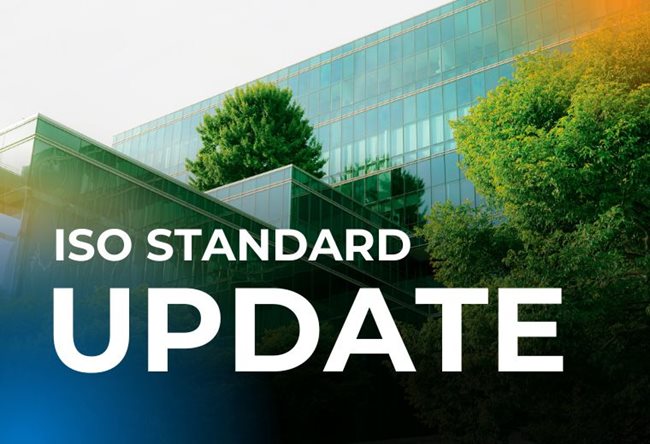ISO standards evolve to incorporate climate change considerations

ISO has made changes to several Management System Standards to make climate change a key consideration. These changes emphasise the importance of addressing the effects of climate change within the framework of organisational management systems.
The updates unpacked
To enhance organisational awareness and response to climate change, ISO has introduced two critical changes within Clause 4:
Original Clause 4.1: “Understanding the organisation and its context. The organisation shall determine external and internal issues that are relevant to its purpose and that affect its ability to achieve the intended result(s) of its XXX management system.”
- This clause now explicitly includes the statement: “The organisation shall determine whether climate change is a relevant issue.”
Original Clause 4.2: “Understanding the needs and expectations of interested parties. The organisation shall determine:
• The interested parties that are relevant to the XXX management system.
• The relevant requirements of these interested parties.
• Which of these requirements will be addressed through the XXX management system.”
- The clause now also states: “Note: Relevant interested parties can have requirements related to climate change.”
While the overall intent of the requirements for clauses 4.1 and 4.2 remain unchanged, these new inclusions ensure that climate change is considered within the management system.
The standards undergoing transformation
A wide array of standards have been updated to reflect this shift, encompassing a diverse range of sectors from Quality management (ISO 9001) to Energy management (ISO 50001) and beyond. This comprehensive update highlights the universal relevance and urgency of addressing climate change across all aspects of business.
Find out if your standard(s) has been updated here
What do these changes mean for your business?
If your organisation already holds certification, you will not need a new certificate issued and there is no need to transition to a new version of the standard. The focus is on enhancing the scope and effectiveness of existing certifications to encompass climate change considerations.
However, you are now required to ensure that climate change considerations are embedded within the fabric of your management system(s).
The approach is not a one-size-fits-all and the changes acknowledge that the relevance and impact of climate change can vary significantly across different industries, organisational scopes, and geographical locations. Therefore, your business must determine whether climate change is relevant or not and if so, you need to ensure climate change aspects and risks are considered within your management system(s).
If you operate multiple management systems and determine climate change is relevant you must consider climate change within the scope of each management system standard.
NQA’s role in ensuring compliance and commitment
Certification bodies, such as NQA, play a crucial role in this update. We are tasked with ensuring that your organisation has appropriately considered climate change as a relevant issue within your management system(s).
This involves verifying that your company has integrated climate change considerations into your objectives and mitigation activities, where applicable.
If your organisation deems climate change irrelevant to your management system, certification bodies must evaluate the effectiveness of the organisation's process in making this determination.
An accredited certification body like NQA can make the certification journey easier. Find out why you should choose an accredited certification body in our latest blog post.
Final thoughts from NQA
The integration of climate change considerations into ISO standards represents a significant milestone in the journey towards sustainable business practices.
As we move forward, the focus on climate resilience will undoubtedly shape the future of certification, reflecting a collective commitment to a more sustainable and resilient world.

![]() Discover how NQA can help reach your green objectives. Visit our Sustainability Hub.
Discover how NQA can help reach your green objectives. Visit our Sustainability Hub.
![]() Want to learn more about the changes and the effect it has on your certification? Contact our team today.
Want to learn more about the changes and the effect it has on your certification? Contact our team today.
